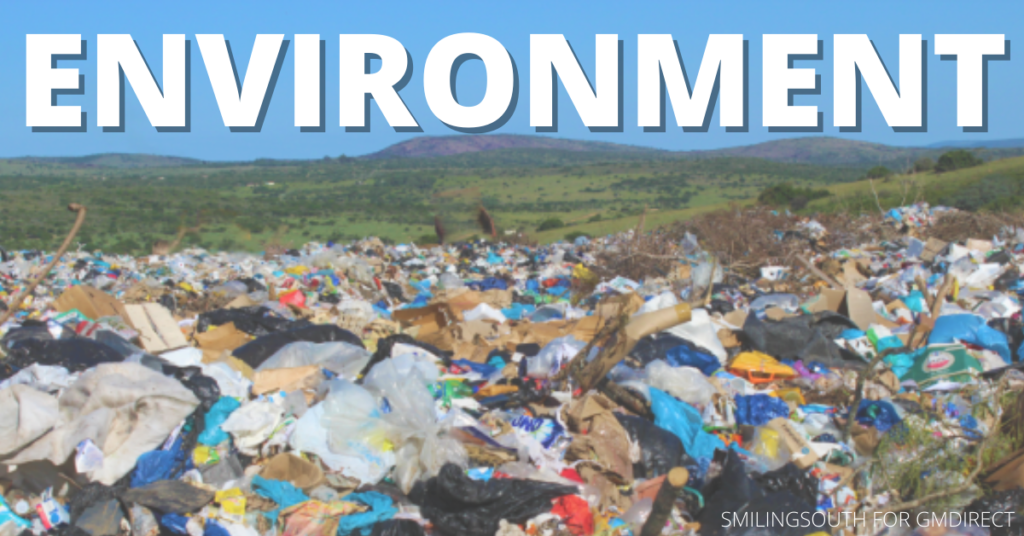2021/22 Budget Review – Chief Directorate: Environmental Affairs Eastern Cape Department of Economic Development, Environmental Affairs & Tourism
The Public Service Accountability Monitor (PSAM) conducted comprehensive analyses of the 2012/13 – 2015/16 budgets of the Chief Directorate: Environmental Affairs of the Eastern Cape Department of Economic Development, Environmental Affairs and Tourism (DEDEAT), and published brief reviews of the Chief Directorate’s respective budgets for the 2017/18 – 2020/21 financial years.
The complexion of the Chief Directorate’s budget remained essentially unchanged over these review periods, and for the 2021/22 financial year the situation is no different.
The 2021/22 budget of DEDEAT as a whole has increased by 21,2% relative to its 2020/21 adjusted appropriation, but whereas this increase incorporates the raising of the allocation to the Department’s Economic Development Programme by 28,8%, the raise for Environmental Affairs is just 7,3%.
In any event, the summary of PSAM’s key findings in relation to Environmental Affairs’ budgets for the 2012/13 – 2020/21 financial years, as captured in its 2020/21 budget review, is equally applicable to the Chief Directorate’s 2021/22 budget. This summary, together with recommendations which enduringly accompany them, is included below.
Key findings
The quantum of the Chief Directorate’s budget has at no stage comprised more than between 0,40 and 0,49 % of the Province’s total fiscal envelope. Both the comprehensive analyses and the reviews can be accessed on PSAM’s website via http://psam.org.za/monitoring-advocacy/
- This is not indicative of environmental protection being of overt concern to the provincial government.
- Despite the fact that provincial nature reserves comprise only 2% of the Province’s land surface area and already enjoy enhanced levels of environmental protection, annually between 61% and 70% of Environmental Affairs’ budget has been channelled to the Eastern Cape Parks & Tourism Agency for nature reserve-related utilisation.
- Effectively therefore only between 30% and 39% of the budget has been available for the Chief Directorate to deliver its core services, which revolve around the administration of a host of statutory provisions, and the fulfillment of numerous functions which are ancillary to and support such administration, across the length and breadth of the Province.
- These residual allocations for the Programme’s responsibilities across the bulk of the Province have amounted to between just 0,14 and 0,17% of the provincial fiscal envelope.
- Likewise they have constituted between only 6% and 10% of DEDEAT’s budget, and between 10 and 20% of the allocation for the Department’s Economic Development Programme.
- This is not concomitant with environmental protection outside of nature reserves being at or near the top of the Department’s agenda.
- By the same token, the budget for environmental protection outside of nature reserves has consistently been of the order of 50% of that of the Department’s third Programme, viz. Administration, which points to a case of the proverbial tail wagging the dog.
- In line with the meagre budget for environmental governance outside of nature reserves, none of Environmental Affairs’ five Sub-Programs have at any stage attracted more than 0,07% of the Province’s fiscal envelope for fulfilling their respective mandates within this domain.
- With the Sub-Programs embracing crucial functions such as environmental impact assessment, law enforcement, coastal management, biodiversity management and environmental education, these allocations place spiraling environmental attrition in the Province in stark perspective.
- Budget has consistently been availed for activities associated with climate change impact mitigation and adaptation, which is regarded as a contradiction in terms in the absence of sound environmental governance at a more foundational level.
- The practice of coalescing budget information pertaining to transfers to the Eastern Cape Parks and Tourism Agency and environmental protection outside of nature reserves obscures insight to Environmental Affairs’ budgetary realities, particularly in relation to the latter dominant responsibility.
Recommendations
- The Provincial Government should take stock of the mismatch between its approach to environmental protection, as reflected in its budgetary allocation to the function, and the compelling need to arrest the decline in environmental integrity at both a global and provincial level.
- Environmental Affairs should be afforded a budgetary dispensation which demonstrates that it is recognised as a crucial player in Eastern Cape governance, and which empowers it to impose itself in accordance with the gravity of the environmental challenges facing the Province.
- Environmental Affairs should furthermore be rehoused institutionally so that it can pursue the protection of the Province’s environment as a fundamental governance priority in its own right, rather than playing second fiddle to DEDEAT’s economic development agenda.
- The Eastern Cape Government’s approach to environmental governance budgeting should be overhauled with a view to the achievement of more realistic correlation between expenditure and the substantive and spatial extent of Environmental Affairs’ mandate.
- Focus at this time should be centered on excellence in baseline environmental governance, the attainment of which will justify the assignment of funds to higher level issues such as climate change.
- Environmental Affairs’ budget structure should be adjusted such that distinction between fund transfers to the Eastern Cape Parks and Tourism Agency and funding for environmental protection outside of protected areas is explicit.
Note: 2021/22 budget details are sourced from Eastern Cape Estimates of Provincial Revenue and Expenditure 2021/22, Eastern Cape Provincial Treasury.


